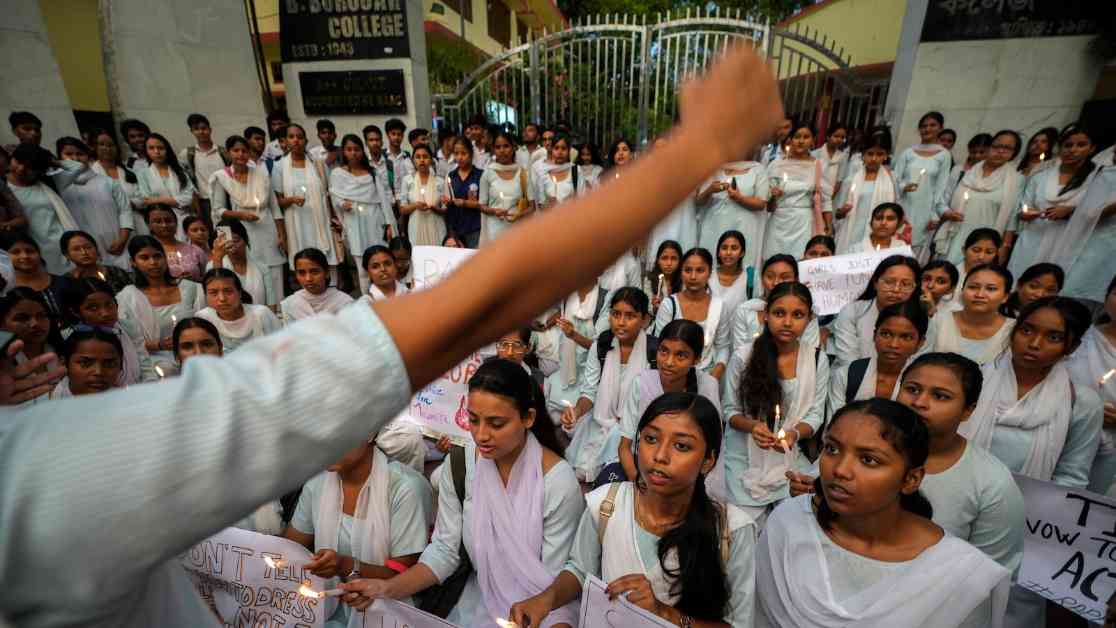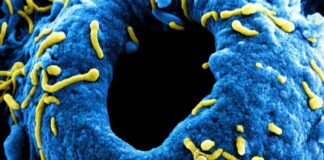India’s Medical Workers Protest Against Doctor’s Rape and Killing
In a powerful display of solidarity and outrage, medical workers across India have launched a countrywide strike to protest the brutal rape and killing of a trainee doctor at a state-run hospital in West Bengal. The Indian Medical Association, the country’s largest group of doctors, called for the strike, announcing that all non-essential services at hospitals would be shut down for 24 hours.
The tragic incident took place at the R.G. Kar Medical College and Hospital in Kolkata, where the lifeless body of a 31-year-old trainee doctor was discovered on August 9. The victim’s family alleges that she was gang-raped, and an autopsy has confirmed sexual assault. A police volunteer working at the hospital has been detained in connection with the crime, but the family believes that more individuals were involved in the heinous act.
The medical workers’ strike has had a significant impact on healthcare services across the country, affecting thousands of patients who rely on hospitals for treatment. The protests, predominantly led by women, have escalated in recent days as demands for a safer working environment for healthcare professionals grow louder.
Women Lead Protests for Justice and Safety
In response to the horrific crime, thousands of women have taken to the streets in cities across India, demanding justice for the victim and calling for safer working conditions for doctors and paramedics. The “Reclaim The Night” marches held by women’s rights activists have drawn attention to the urgent need for better safety measures within hospitals and medical campuses.
The Indian Medical Association has called for public support in their fight for justice, describing the doctor’s rape and killing as a “crime of barbaric scale” that underscores the lack of safe spaces for women in India. In addition to seeking justice for the victim, medical workers are advocating for more stringent laws to protect them from violence, including making any attack on healthcare professionals an offense without the possibility of bail.
Challenges in Addressing Sexual Violence in India
Sexual violence against women remains a pervasive problem in India, with many cases going unreported due to the stigma associated with such crimes and a lack of trust in law enforcement. Women’s rights activists point out that the issue is particularly acute in rural areas, where victims of sexual assault may face social ostracization and families may prioritize their reputation over seeking justice.
Despite these challenges, there has been an increase in the number of reported rape cases in India. According to the National Crime Records Bureau, police recorded 31,516 reports of rape in 2022, marking a 20% rise from the previous year. The 2012 gang rape and killing of a 23-year-old student in New Delhi sparked widespread protests and led to legislative changes aimed at harsher penalties for perpetrators of sexual violence.
The amendments to India’s rape laws in 2013 criminalized stalking and voyeurism, as well as lowered the age at which a person can be tried as an adult from 18 to 16. The government also introduced the death penalty for repeat offenders, reflecting a commitment to addressing the scourge of sexual violence in the country.
In conclusion, the rape and killing of a trainee doctor in West Bengal have galvanized medical workers and women across India to demand justice and safety for healthcare professionals. The ongoing protests underscore the urgent need for stronger laws and better protection measures to prevent such heinous crimes and ensure the safety of all individuals working in the healthcare sector.

















